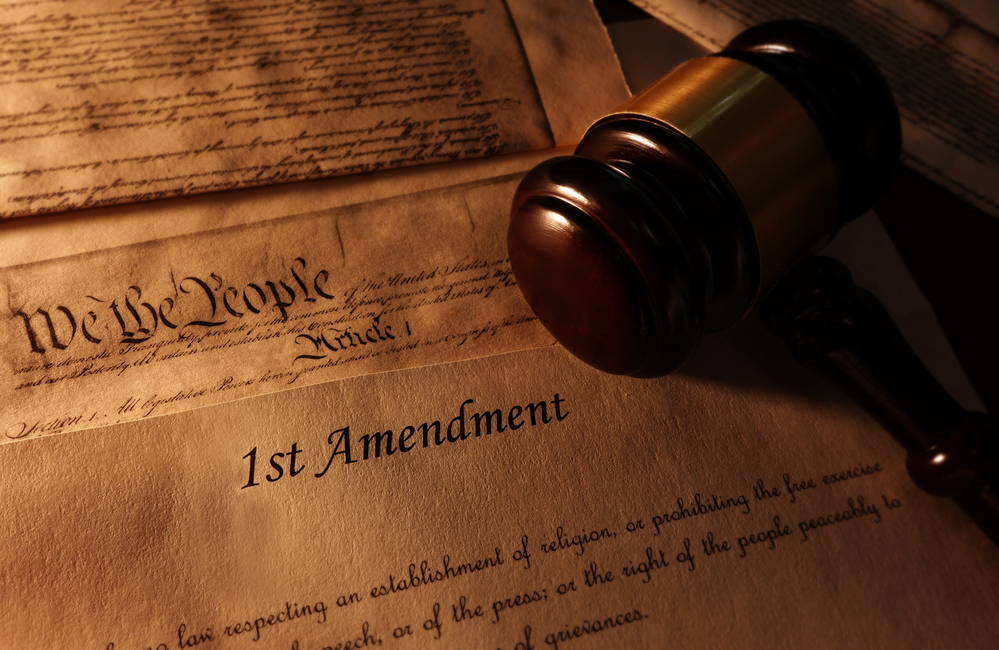On April 15, 2019, the United States Supreme Court heard oral arguments in the case of Iancu v. Brunetti.
Erik Brunetti’s legal team successfully argued to the US Court of Appeals for the Federal Circuit that the USPTO should approve registration of the mark “Fuct” for clothing items, in part because the scandalous clause of the Lanham Act preventing him from doing so was unconstitutional. Section 2 (a) of the Lanham Act, 15 U.S.C. 1052(a), provides in part that a trademark shall be refused registration if it “consists of or comprises immoral . . . or scandalous matter.”
The Federal Circuit court decided that the scandalous clause violated the First Amendment right to free speech.
In reviewing the briefs that were filed in the US Supreme Court by the USPTO and Brunetti, I found a few of the arguments to be quite interesting.
The USPTO explained that when an application is reviewed by a trademark examining attorney, the standard of review to determine whether the scandalous marks provision applies is, whether a “substantial composite of the general public would find the mark scandalous.”
The definition for scandalous that is used by the USPTO is: “shocking to the sense of truth, decency or propriety; disgraceful; offensive; disreputable; . . . giving offense to the conscience or moral feeling; . . . or calling out for condemnation.”
One of the arguments presented by the USPTO was that the scandalous clause is viewpoint neutral. They argued that the scandalous clause is used only to limit marks that contain profanity, excretory, or sexual matter.
The Brunetti legal team proceeded to demonstrate that the scandalous clause was not viewpoint neutral and the USPTO did not use the clause to refuse only marks that contain profanity, excretory, or sexual matter.
Some of the examples presented by Brunetti of trademarks refused registration by the USPTO based on the scandalous clause are:
- TALIBAN COOKIE COMPANY – Class 35 for retail sales
- COFFEE NAZI – Class 16 for literature book series
- WIFE BEATER – Class 25 Clothing (refused in 2004)
Ironically, on October 3, 1967, the USPTO issued a registration on the principal register for the mark WIFE BEATER in Class 50 for “a novelty item consisting of a palm fronds with a carving on the thick portion thereof and having substantially the entire flexible portion cut therefrom.” See US Registration 836,434.
Brunetti also listed a number of trademarks that were approved and registered by the USPTO that contained profanity, excretory, or sexual matter:
- FCUK
- FWORD
- FAMOUS FECES
- POOP
- SATAN’S PISS
- IRISH BY INTERCOURSE
Those are just a few of the examples listed in the Brunetti brief.
Brunetti argued that, based on the numerous examples he found in the USPTO database, all scandalous clause refusals are based on viewpoint, that profanity expresses viewpoint, and that the USPTO’s refusal of the mark FUCT was because of Brunetti’s viewpoint.
As I reviewed these arguments, I wondered – is there such a thing as “viewpoint neutral”? Who in this world has a neutral viewpoint – especially when it comes to the words we choose to use.
Also, words that were considered acceptable in the 1960s (i.e. WIFE BEATER) are now considered scandalous. On the flip side, language that was considered shocking in the 1940s is now used in everyday language by some members of the public.
Who in the USPTO decides when a word is considered acceptable or not acceptable? Who decides what a substantial composite of the general public would be, and whether or not they would find a mark scandalous or not?
The justices on the US Supreme Court will have an interesting discussion regarding freedom of speech and if it is the government’s job to tell the public what is scandalous and immoral. Maybe the justices will allow the free market to decide if a trademark is scandalous or immoral.
If you would like to read the briefs written by both parties in Iancu v. Brunetti (No. 18-320), go to www.supremecourt.gov and search the docket for Case No. 18-320.
